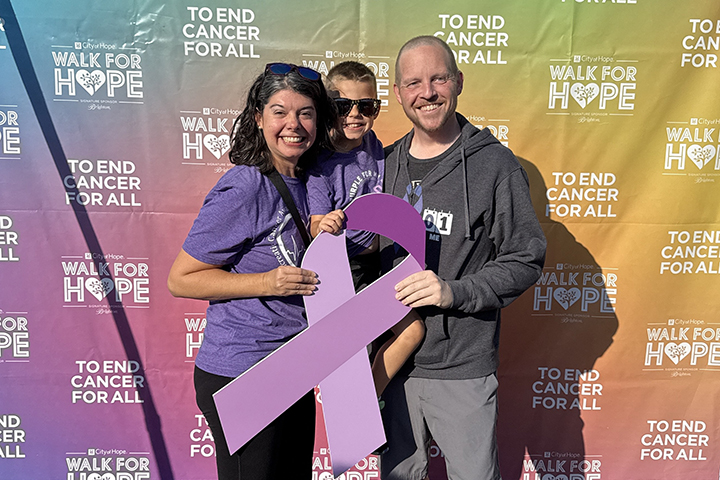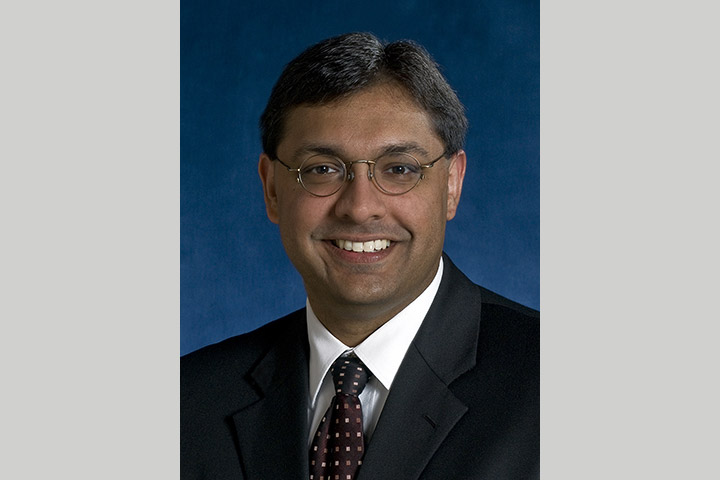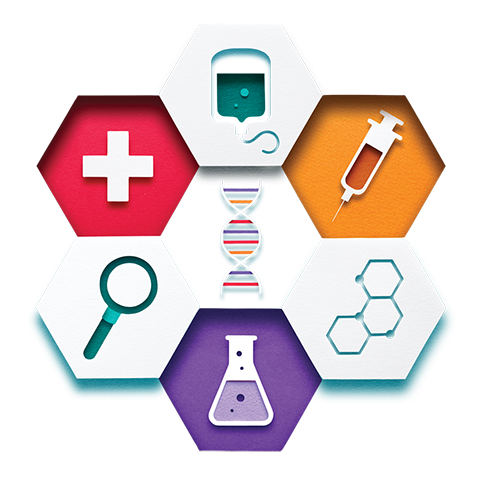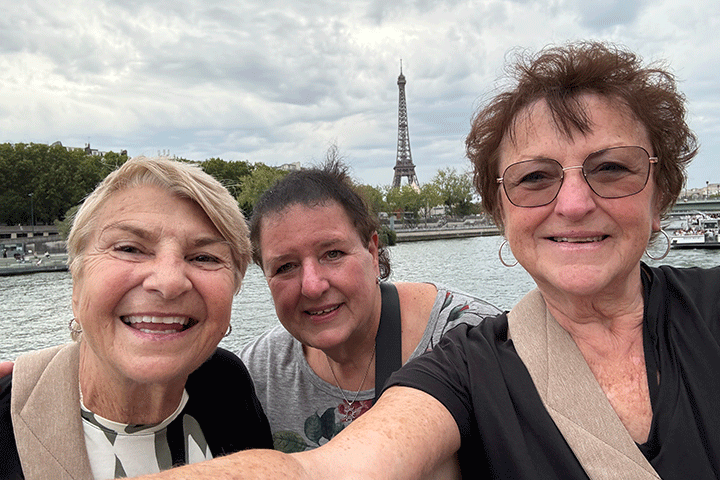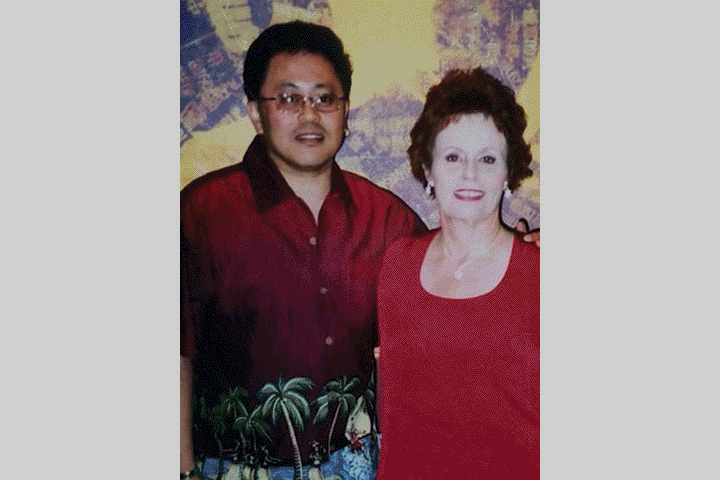Practicing Gratitude Every Day
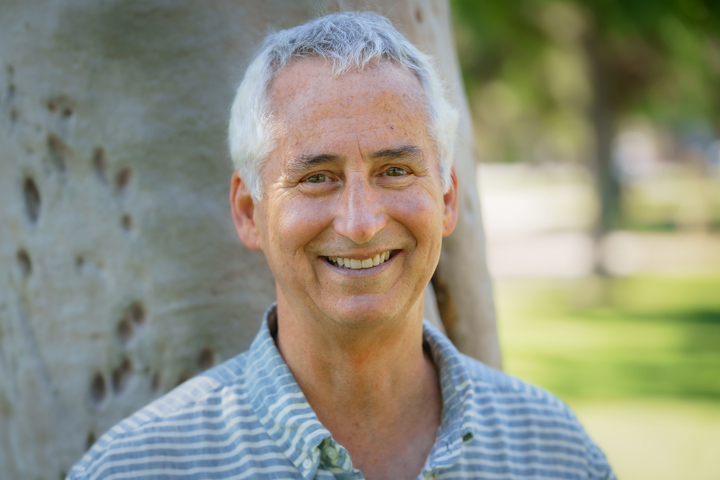
- Abdominal discomfort leads to stage III pancreatic cancer diagnosis
- Initial chemotherapy unsuccessful
- A new oncologist and genetic testing show microsatellite instability
- Treatment with Keytruda
I am a four-year stage III pancreatic cancer survivor.
Let me rephrase that. I’m thriving, not just surviving.
I’m a 63-year-old male, working full-time, parenting my two teenage boys, and trying to be the best boyfriend I can be to my long-time girlfriend.
I’ve taken five trips during COVID (always with responsible social distancing and wearing a mask around people), work out and move my body at least two hours every day (Pilates, yoga, walking, hiking, swimming, and riding an exercise bike), and feel like I’m in the best shape I’ve been in in decades. I’m practicing daily meditation. I try to eat right (though not perfectly), and take some vitamins and enzymes to supplement my diet.
Oh, and over the last several months I wrote a book called Life is a Ride about my cancer journey, that was recently published, and have begun working on my second manuscript about overcoming life and business failures (to be titled “Stumbling to Success”). I’m also studying for my real estate license in order to transition into a second career for my “retirement” years.
How did I get from a stage III pancreatic cancer diagnosis four years ago to thriving today?
My Journey Starts
In October 2016, I was 59 and had been suffering from some minor abdominal discomfort and depression. (At the time, I wasn’t aware that there was a connection between depression as a symptom of/precursor to pancreatic cancer). In getting what I thought were routine tests to make sure that nothing serious was wrong with my body, I was stunned to learn that I had stage III pancreatic cancer.
In the midst of the panic and tremendous fear that immediately ensued, I followed the oncologist’s orders without hesitation and underwent chemotherapy—a choice that was almost a fatal mistake. The chemo I was given did not work for me, and it was also very difficult on my body and emotional psyche.
To be clear: chemotherapy can and does work for so many others with pancreatic cancer. I’ve seen that firsthand. But it wasn’t working for me.
Five months of chemotherapy had poisoned my body and nearly destroyed my spirit. I was at a low point: my tumor was getting larger while under treatment, and my body couldn’t take any more of the chemo. With no immediate Plan B in mind, in March 2017 I fired my oncologist. At that moment I decided I would rather die of cancer than from the treatment.
Other than the day I was diagnosed in 2016, the day I quit chemo and fired my oncologist in 2017 was the scariest day. As it turned out, it was also the best decision I ever made.
Charting a New Course
The very next day, I began exploring different treatment paths, including both natural and Western medicine immunotherapy. My new general practitioner doctor, who administered some natural immune-boosting treatments, also had the presence of mind to consult with different oncologists, which led to my biopsy sample being sent to a specialized laboratory for genetic testing. As it turned out, that genetic testing led to the discovery that my cancer cells have a difference, one that my original oncologist was not aware of and which explained why chemotherapy had not been working. My “garden variety” cancer (so termed by my first oncologist) was actually a rare one-in-a-hundred condition—pancreatic cancer with microsatellite instability (MSI).
Coincidentally, at the same time that I learned of this rare condition, in June 2017 the FDA approved the immunotherapy drug Keytruda for MSI-pancreatic patients. I found a new oncologist at UCLA/Santa Monica Hospital, Dr. Zev Wainberg, who put me on a two-year treatment plan for Keytruda. That treatment ended in May 2019, and other than continuing with daily supplements of vitamins and enzymes to continue helping my immune system, I am no longer being treated as a cancer patient. My tumor is about two-thirds of its original size; my oncologist suspects that the mass that remains in my body is at best dead tissue, and at worst dormant.
To say that I am relieved and happy would be an understatement.
Everything Helps
What I also know is that I am still alive and doing pretty damn well through this rather unorthodox cancer journey. I know that chemotherapy didn’t work for me and almost killed me. I know that the natural immunotherapy treatments helped; how much, I simply don’t know. The two years of Western medicine immunotherapy (Keytruda) also helped; again, how much, I don’t know.
I also know that eating healthier has helped. Moving my body every day has helped. Meditating has helped. Having a great support system, led by my girlfriend and my kids, has helped. Thoughts and prayers have helped. Taking charge of my own health helped. And remembering how lucky I am and practicing gratitude every day has helped.
Watch Chris tell his story in “Surviving and Thriving.”
